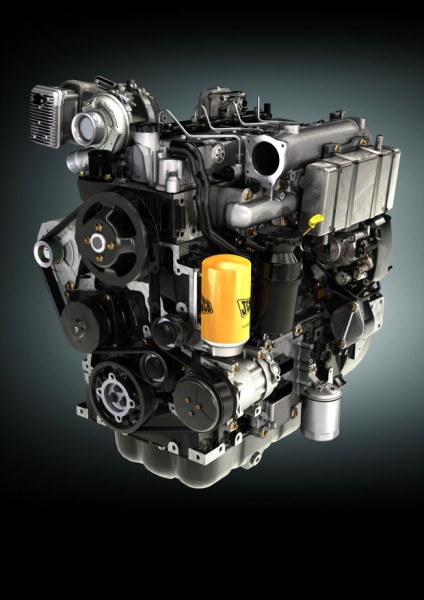 The development of the JCB Ecomax T4 4.4 litre engine could result in the off-highway sector's cleanest engine. |
JCB has invested about GBP80 million (USD120.3 million) in researching and developing a combustion system for a new diesel engine that will be used in its telehandlers and other equipment.
It is one of the biggest investments in the company's history.
The company's development of the JCB Ecomax T4 4.4 litre engine, the latest generation of JCB Dieselmax engine, could result in the off-highway sector's cleanest engine. The investment has delivered an industry-first solution which eliminates the need for any exhaust after-treatment and, according to JCB, delivers cost savings for mid-range customers.
JCB says the key benefits of the innovation are reduced fuel consumption, reduced cost of ownership, better reliability, and better packaging with no compromise of machine design.
Alan Tolley, JCB's director of engine programmes, says meeting Tier 4 emissions legislation is not only a challenge but a "huge opportunity" for innovation". "We believe the result is not only the off highway sector's cleanest engine, but a first for our industry."
"The expectation for the first part of Tier 4 interim/Stage 3B legislation was to achieve these really low particulate levels you needed to fit a diesel particulate filter (DPF)," Tolley explains.
"But when you look at that technology for our particular part of the market, namely mid-range construction equipment, we see there are some real disadvantages with that solution, in particular increased fuel consumption through back pressure to the engine," he continues.
Tolley adds that in many applications load cycles are also light and the DPF doesn't self regenerate and needs fuel to force it to do so.
JCB's strategy is to meet Tier 4 interim emission standards without a DPF and to achieve it without any exhaust after-treatment. Their approach has been to focus R&D on a high efficiency combustion system, not creating pollutants that have to be dealt with later. According to JCB, this would result in very low fuel consumption levels.
The engine is now undergoing full in-field testing before going into production in 2012 to meet Tier 4 interim/Stage 3B legislation.
Since launching in 2004, the JCB Dieselmax engine, which powered the JCB Dieselmax car to a world diesel land speed record of 350mph (518kmph) on the Salt Flats in Bonneville, US in 2006, has undergone continual development. Over 100,000 engines are now working in the field globally.